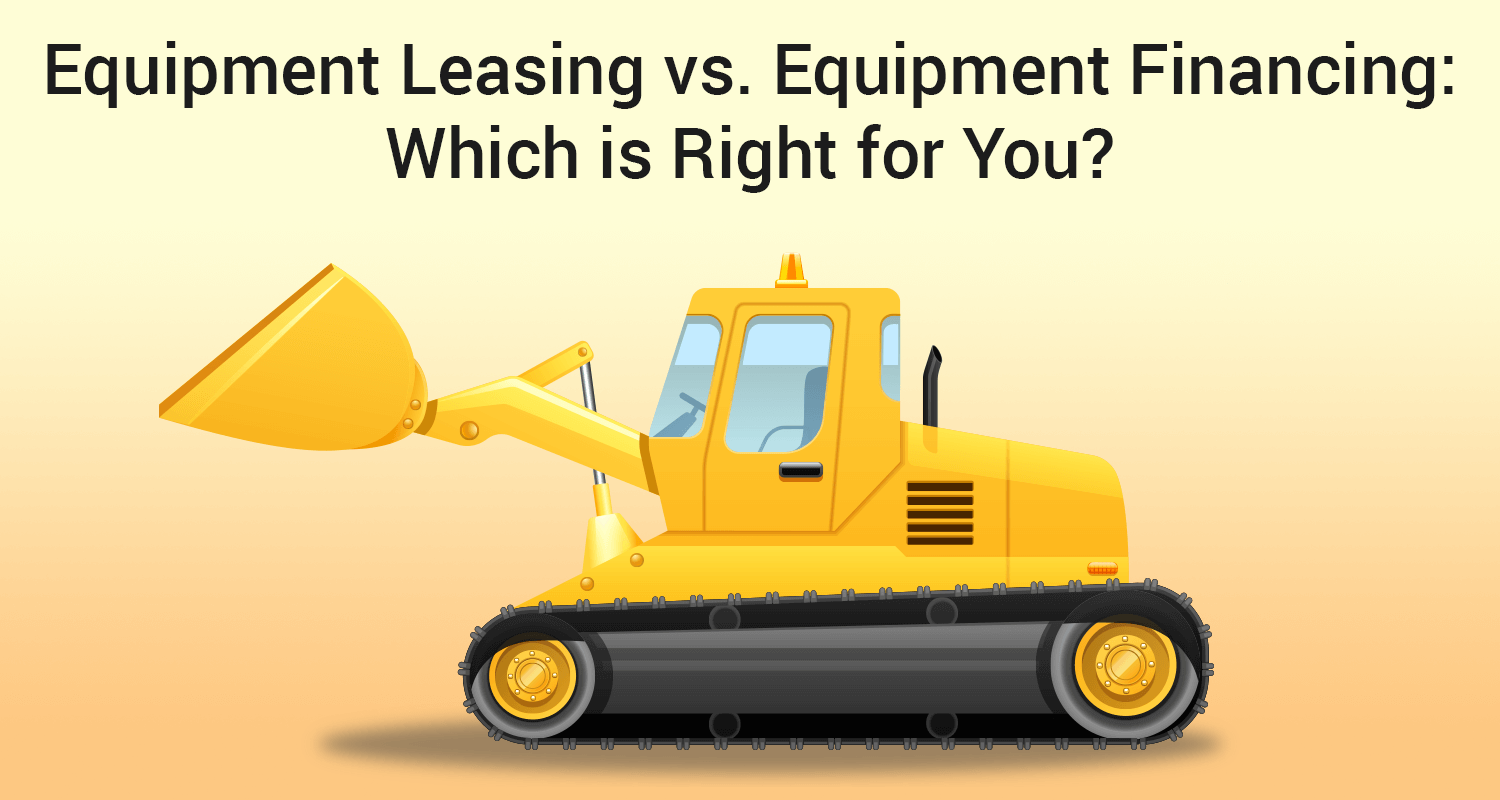Equipment Leasing versus Equipment Financing: Which Option is Right for You?
Table of Contents
All firms will need some equipment to start business, and even more equipment to grow their operations. It can be machinery or trucks for a factory or logistics business, computers or printers for an office, specialised equipment such as CT scanners and ultrasound devices at a medical clinic, or heavy machinery needed for a construction business.
But all firms may not be in a position to buy equipment on their own. That leaves them with two options: lease the equipment or buy through financing.What Is Equipment Leasing?
In equipment leasing, entrepreneurs get to use the equipment without owning them, but for a fee. Entrepreneurs can go to a vendor that owns the equipment and sign an agreement for the right to use it for a particular rental or fee for a fixed period. The fee may be fixed or linked to an external variable like inflation. They will have to return the equipment after the expiry of the lease period. Of course, if both the parties agree, the lease period can also be extended.There are certain benefits attached to equipment leasing such as:
• Entrepreneurs don’t have to invest heavily into purchase of equipment, leaving the firm free to utilize the capital elsewhere.
• In most cases, the equipment repair work is done by the vendor.
• It is costly in the long run.
• Since the business doesn’t own the equipment, the firm won’t get the benefit of depreciation.
• If there is a cash shortfall, then also lease rental will have to be paid.
• If a business needs the equipment even after the lease expiry, it will be at the mercy of the vendor, who may jack up the rates or deny extending the period.
What Is Equipment Financing?
In equipment financing, the firm takes a loan from banks or non-banking finance companies (NBFCs) to buy the equipment. The equipment itself can be kept as collateral for the loan. The loan is usually repaid in equal monthly installment with an interest component.Equipment financing usually comes with certain benefits. These are:
• The business owns the equipment and can use it as it deems fit and for as long is needed.
• Since the firm owns the equipment, it can claim depreciation on it.
• It is easy to get equipment finance as usually the equipment itself acts as collateral.
• The interest rate on equipment loans is usually low due to its collateralized nature.
• The business may have to make some down-payment on equipment.
• If the business no longer needs an equipment it eats into its cost.
Conclusion
The decision on whether to opt for equipment financing or equipment leasing would depend on various factors including the time period for which you need the equipment.So, if you need equipment for a period shorter than its shelf life then leasing may work out better. If you need the equipment for a longer period then equipment finance works out better
It is always advisable to check out financing options before deciding on leasing as this gives you the advantage of owning an equipment without creating extra collateral and lower cost in the long run. Also, with easy availability of equipment finance a firm can always buy an equipment even if the need is for shorter time and sell it later when not useful.Disclaimer : The information in this blog is for general purposes only and may change without notice. It does not constitute legal, tax, or financial advice. Readers should seek professional guidance and make decisions at their own discretion. IIFL Finance is not liable for any reliance on this content. Read more




